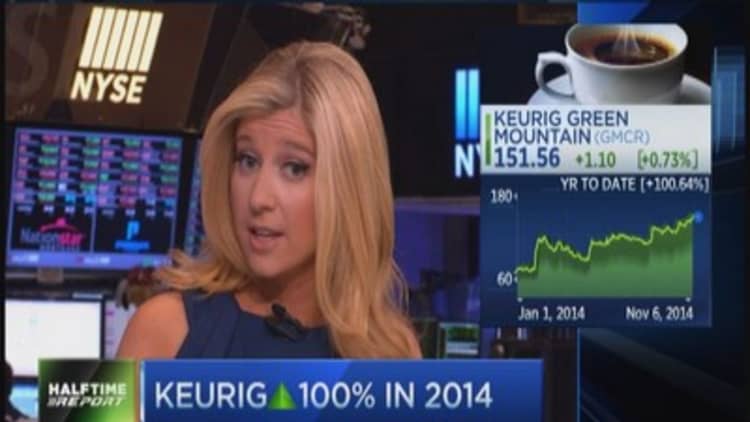Michael Karsch is hoping to apply the lessons of juice to hedge funds.
The prominent investor closed his stock-focused Karsch Capital Management in 2013 after 13 years and peak assets of $3.4 billion. He then invested and helped build Juice Press, a New York-area chain of juice bars that sells ultra-healthy vegan beverages. The business, founded by former professional Thai boxer Marcus Antebi, has grown to more than two dozen locations and a valuation of $100 million, up from about $15 million when he first invested.
The experience of building a positive culture there inspired Karsch to get back into the hedge-fund game, and the 46-year-old plans to launch a new firm later this year.
"I had a chance to, on a clean basis, start again, and I found myself doing a better job understanding how to motivate other people," Karsch said in an interview Friday. "If I can apply the principals of how Juice Press was built, from a cultural standpoint, and get back to being more hands on ... I know I'd love more than anything to build in the industry I know best, a money management firm."

Read MoreHere are the best hedge funds for 2015: Experts
Karsch's still unnamed firm will be based in the same office as his old KCM, space he kept for his personal business endeavors. Karsch is currently interviewing people for positions at the hedge-fund firm, which will again focus on investing in stocks.
The strategy will be similar to before: Karsch's expertise is in consumer and retail companies, along with "TMT," which stands for technology, media and telecommunications. While the focus will be on equities, the new fund will have a slightly broader mandate, such as the ability to invest in distressed bonds should the opportunity arise.
It already has about $300 million in commitments, according to a person familiar with the situation, with a substantial allocation from Karsch.
Michele Gesualdi, a hedge fund investor with Kairos Investment Management in London, said the move was unusual.
"It is certainly a contrarian decision," Gesualdi wrote in an email.
He said successful, long-established managers tend to transform their firms into family offices to remove themselves from the scrutiny of investors and the red tape of running a business. Examples include George Soros, Stan Druckenmiller and Chris Shumway.
Gesualdi added the road back can be difficult, even for established investors.
"Importantly we found that in some instances it has been a struggle for some managers to come back, as the intensity of markets has severely increased as of late and adjusting to a new environment can be extremely challenging," he said.
Read MoreThis investor went from hedge fund to franchisee
Karsch says he always planned to come back to hedge funds, but needed to take a break after essentially looking at stocks seven days a week for 18 years. As KCM grew, Karsch said he spent more time on firm management as opposed to his passion of picking businesses to invest in.
"It felt like a struggle for several years," Karsch said of running KCM, which fell to $1.8 billion in assets in 2013. "The business didn't really reflect what I enjoy doing the most in the business and what I do best."
Over the 13-year life of the fund, KCM produced annualized returns of 7.5 percent, compared with 3 percent for the S&P 500 index. The fund only lost money two years: It fell less than one percent in 2008 and 2 percent in 2011. While the performance was strong, Karsch said he was "frustrated" by his returns in the bull market after the financial crisis.
Better collaboration
The new firm, Karsch said, will be more collaborative, with everyone sitting together to better discuss investment ideas. Other people, like the yet-to-be-hired chief financial officer, will take on more management responsibility so Karsch can do more stock picking.
Karsch has kept his former head trader, Matt Plotkin, and hired an analyst, Tom Tully. Both will stay on from his consulting business and family office to the new hedge fund firm.
Besides Juice Press, Karsch has also spent his time as the owner of Dunkin' Donut franchises in Austin, Texas, where he also invested in distressed real estate. Karsch also acted as a consultant to the family office of Druckenmiller, his old boss at Soros Fund Management. And he kept investing his own money.
"I was very active," Karsch said of his time after KCM.
More juice
Karsch isn't getting out of Juice Press and said he is "thrilled" to keep his investment there.
Juice Press CEO Antebi notes in an online profile that Karsch and his other partners are "the greatest minds one could ever hope to be involved with, both professionally and socially."
Karsch remains excited on his old muse. "I think Juice Press," he said, "has the ability to be the next Shake Shack."






